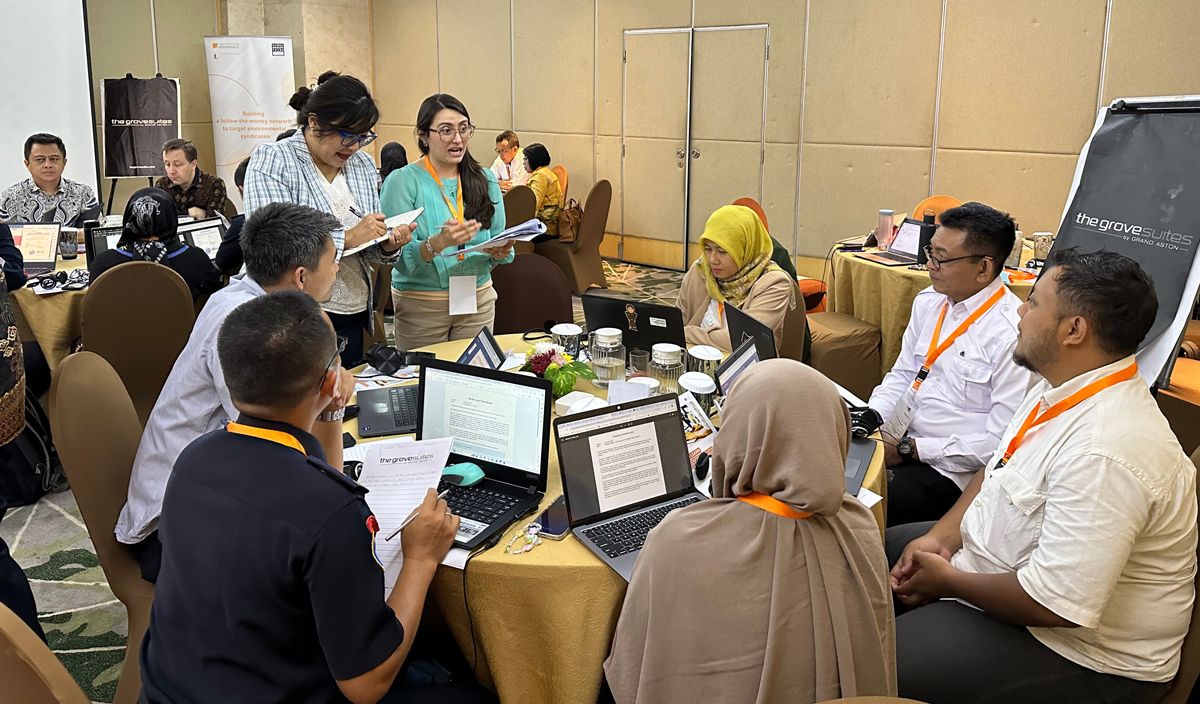Building follow-the-money skills and networks to target environmental crime syndicates
The illegal wildlife trade is operating at an industrial scale. It has a direct impact on the accelerating rate of biodiversity loss and deprives local communities of sustainable livelihoods.
A grant from the UK’s IWT Challenge Fund has enabled the Basel Institute’s Green Corruption team to extend its work in a number of countries vulnerable to the illegal wildlife trade. By providing training, mentoring on live cases and fostering communities of practice, we are advancing the use of “follow-the-money” techniques to combat the criminal networks operating in this field.
An underused approach
The follow-the-money approach involves scrutinising transactions to extract evidence about crimes and criminal networks. It is widely recognised for its value in investigating and prosecuting profit-driven crime as well as confiscating the proceeds and instrumentalities of crime. However it is still underused, particularly in relation to environmental crime.
Like other transnational crime networks, environmental crime syndicates exploit legal, transport and financial systems to facilitate crimes and evade detection, moving money and goods in complex networks around the world. But the use of these systems is also the criminals’ Achilles heel – the size and sophistication of their networks create a significant footprint and enable investigators with the right skills to trace their financial flows.
Our programme aims to capitalise on this opportunity by strengthening capacity in follow-the money-techniques, encouraging cross-border collaboration and providing opportunities for peer learning.
Training investigators to trace funds
Building capacity for these techniques in the environmental field is the foundation of this initiative. This is achieved through a combination of intensive training in financial investigations and asset recovery, and in-person mentoring by locally based advisors. This face-to-face, tailored support can help officers to translate new knowledge into practice, especially when resources are limited.
We now have local teams working with government agencies in countries directly impacted by the illegal trade in wildlife and related environmental crimes:
- In Madagascar, where several species of fauna and flora are under extreme threat from the illegal wildlife trade and illegal logging. The seizure of tens of thousands of radiated tortoises from traffickers in 2018 is just one example of the massive and organised scale of these operations.
- In Peru and Bolivia, where the jaguar population is classified on the International Union for Conservation of Nature Red List as “near threatened” partly as a result of the illegal trade in this coveted species.
- In Uganda, which is a transit hub for wildlife products, including ivory and pangolin scales, and a centre of complex financial flows in Africa and beyond.
- And in Indonesia, where illegal, unreported and unregulated fishing threatens marine ecosystems and affects livelihoods.
Strengthening the network
A second pillar of the IWT Challenge Fund project is to create a community of experts and advisors on follow-the-money approaches in the environmental sphere. Through virtual roundtables with other IWT Challenge Fund grantees and civil society organisations from around the world, we are collectively working to increase the use of financial investigations and asset recovery in the fight against illegal wildlife trade.
As well as the benefits of peer learning and support, building this community will help to generate “surge” capacity to investigate and take down major environmental crime syndicates.
Knowledge sharing
These efforts align with the establishment of a dedicated Follow-the-Money Working Group in 2022 as part of the Countering Environmental Corruption Practitioners Forum – an initiative of the Basel Institute, WWF, Transparency International and TRAFFIC. Led by our Green Corruption team, the Working Group has already been instrumental in facilitating knowledge exchange through workshops on various follow-the-money topics, including closed case reviews, recent trends and proactive financial analysis.
An additional sub-group made up exclusively of law enforcement professionals allows peer learning among prosecutors and investigators who are receiving mentoring in our priority countries. These meet virtually to share their experiences and challenges.
Increasing risk for criminals, and reach for practitioners
As long as environmental crime remains a high-profit and low-risk activity, we will never succeed in combating it. Nor will we succeed without networks of skilled practitioners that reach as far as those of the crime syndicates.
The twin pillars of this IWT Challenge Fund project – building both technical capacity for financial investigations and a broad follow-the-money practitioner network – are therefore crucial steps in strengthening global efforts to protect our wildlife and biodiversity.



